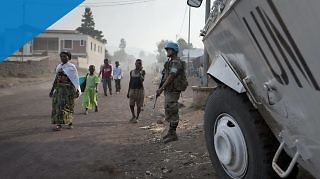There are a multitude of descriptions of what POC means, with different actors having diverging perspectives.
- Daily analysis in your inbox
- Topics & regions
Explore All Topics & Regions
Most Popular
- Arab Spring | 57 articles
- Central Asia | 35 articles
- Climate Change | 63 articles
- Conflict | 125 articles
- Democracy | 45 articles
- Development | 60 articles
- Elections | 120 articles
- Fragile States | 74 articles
- Health and Security | 35 articles
- Humanitarian Affairs | 105 articles
- Justice | 46 articles
- Mali | 36 articles
- Mass Protest | 40 articles
- Peace and Security | 90 articles
- Peace Processes | 91 articles
- Peacebuilding | 62 articles
- Peacekeeping | 203 articles
- Rebel Groups | 38 articles
- Resources | 41 articles
- Rule Of Law | 34 articles
- Somalia | 34 articles
- Southeast Asia | 49 articles
- Statebuilding | 57 articles
- Sustaining Peace | 31 articles
- Syria | 81 articles
- Technology | 36 articles
- Terrorism | 131 articles
- United Nations | 212 articles
- Women Peace and Security | 130 articles





